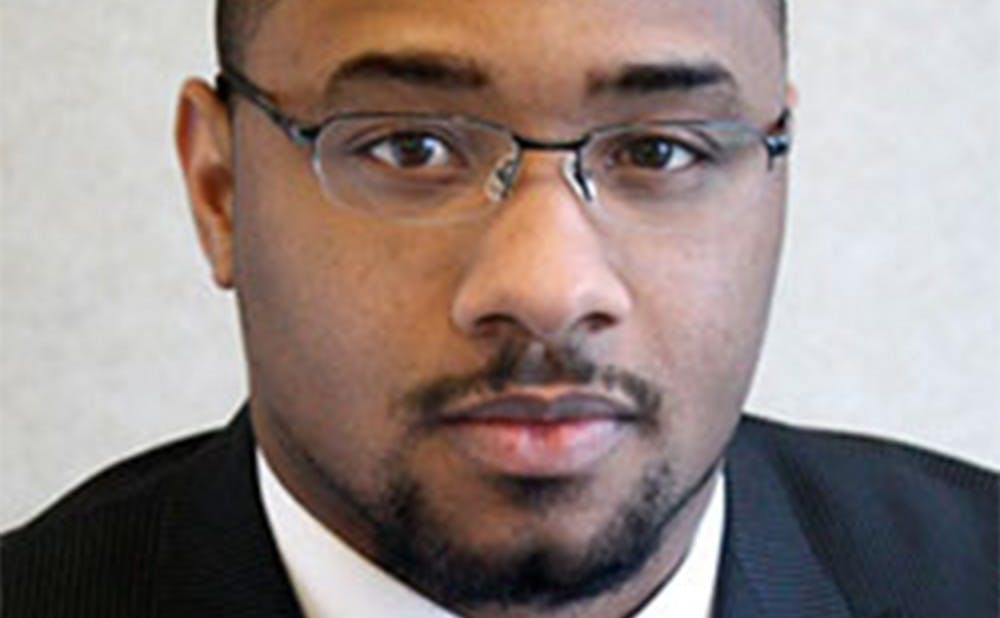The Office of the University Registrar has experienced a lot of change this year with the appointment of new University Registrar Frank Blalark. Previously served in the same position at Purdue University, Blalark previously served in the same position at Purdue University and also serves as assistant vice provost at Duke. He replaced Bruce Cunningham Aug. 31. Cunningham retired after his tenure of almost 20 years at the registrar’s office.
The Chronicle’s Janie Booth sat down with Blalark and discussed his plan to focus on cultivating a strong relationship with the student body in his new role.
The Chronicle: What inspired you to become a registrar?
Frank Blalark: I began my career mostly interested in teaching history and returning to Las Vegas to coach track and football. Along the way, a few personal mentors encouraged me to pursue graduate studies and a professional career in higher education. I ventured down a student affairs path until an administrator noticed my knack for process and data analysis. This introduction ultimately pivoted my journey toward the Office of the Registrar at the University of Minnesota—where I also graduated with a Ph.D. in Education Policy and Administration.
TC: What are the main responsibilities of your position?
FB: If I were to sum it up, I would say that my main responsibilities focus on being the data custodian of the academic record. However, there are many subparts to such a vague high-level role—such as administrative responsibilities. I supervise staff, and manage the operation of our systems. I also oversee academic records and operational system and data support.
Overall, the systems are changing, in trend with the global shift in technology. Google is not the same as it was ten years ago, and neither is registration software. Student Information Systems are the same way—they have been around for a while now, but are starting to change the architecture underneath. New tools have emerged in registration, such as apps that help students better choose their course loads.
TC: How has your background in football influenced your career today?
FB: Growing up I played serious sports. I came from a wrestling family, and I played baseball, football and track. I went to college to play football and I also ran indoor track. In particular, football is a team sport, and it really helped me to develop certain roles and responsibilities. As a defensive player, I learned how to help others out. For example, as a defensive back, if I am covering a receiver as a running back, I have to leave my receiver and collaborate with others to make a tackle. As a registrar, I have to think about how I can help others and improve their environment, whether that is with security, financial aid or any other office.
TC: What has surprised you about Duke so far?
FB: I have not been here long enough to be surprised. It’s all still so new and exciting. However, I can say that everyone in the community has been welcoming and committed to improving various aspects of the academic and social community. As the saying goes, “We are Duke!” What you don’t get to see on the student side is there are a lot of us ‘under the hood’ trying to figure out ways to make things better.
TC: Last year, ACES was “hacked” by a group of senior Duke students, allowing them to register early for classes. What are your thoughts on this issue? Have modifications been made to the program?
FB: I’ve heard very little about this situation, so I can only comment on what I know thus far. I can’t imagine that unauthorized and unsupervised hacking of such a large and complex system was greeted with praise. However, I would be interested in knowing what was going through the person’s mind at the time that they developed the “hack.”
During my tenure, I hope to develop a strong relationship with the student body. Through this relationship, I would also hope that we can collaboratively find creative solutions to various process and/or system deficits. I’m excited for the unique solutions we might be able to create together.
If there are a lot of folks that are technically savvy, I would rather bring them in to help me figure out what is wrong with the system, like beta-testing, as opposed to me saying “Here’s how it is, there’s no way to change it.” Students might tell me “there is a different way to do this now, I just learned about this in class, in the hacker/development community.” I would like to meet with them and have them help me help them.
TC: Are there any changes to the registration program this semester?
FB: I don’t imagine that there will be any changes this semester, but I will make it a priority to review internal registration related processes and reach out to a wide group of faculty, staff, and students to learn more about the pain points.
TC: What advice do you have for students registering for classes in November?
FB: If you can, think about the courses you are going to take before registration day. Have options and alternatives, and be ready to change. You don’t want to get caught right away if a course fills up.
Get The Chronicle straight to your inbox
Signup for our weekly newsletter. Cancel at any time.

